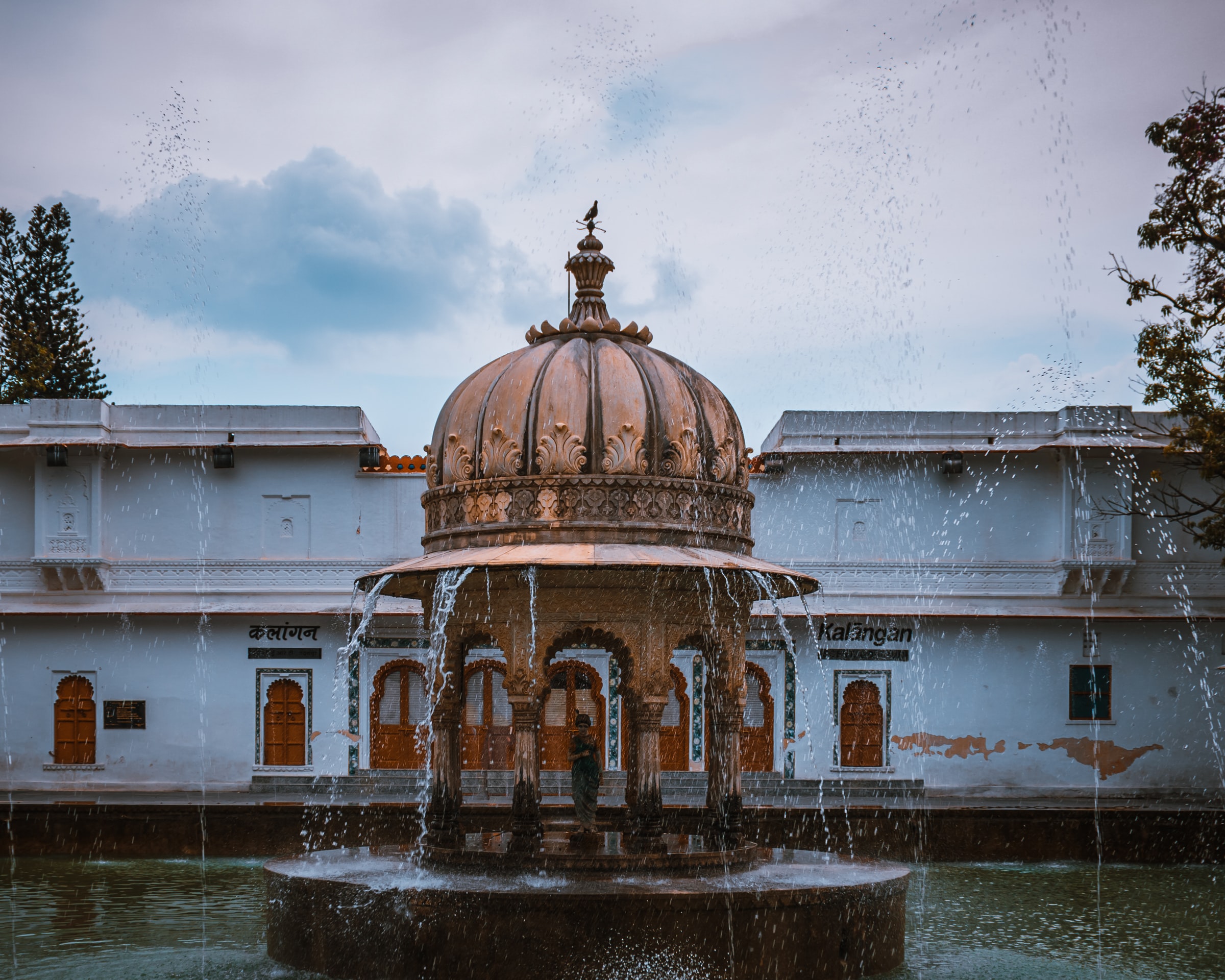Water Resilience in Historic Cities
Course Name: Water Resilience in Historic Cities
OCW type: Course
Higher Education Institution: Kamla Raheja Vidyanidhi Institute for Architecture and Environmental Studies (KRVIA), Mumbai

Description of course
Aim: Training Urban design and urban conservation professionals in understanding water vulnerabilities and making urban centres water resilient.
Course Objectives:
To understand historic cities with relation to their water resources, catchment areas and urbanization patterns thereby intervening in a manner to make them self-sufficient in water and climate resilient through appropriate urban infrastructure, planning and policy.
Learning Outcomes:
Understanding the water stresses/conditions or water-based stresses that may impact the city’s water basin or its urban fabric and architecture.
Assess the resilience of the city’s water basin, and its geographical and intervened edge conditions.
Generate and appraise interventions that yield greater resilience for the city’s water basin/ conditions and its geographical and intervened edge conditions.
Course Lectures Schedule:
|
Sl.No |
Lecture Titles |
Lecture Description |
|
1 |
Introduction and one’s water foot print |
Understanding consumption of water at personal and society level to analyse consumption of treated domestic water versus flushing and secondary use of water |
|
2 |
Water infrastructure across Historic Indian cities |
Understanding various typologies of both water supply as well as water disposal systems adopted in historic Indian cities with the success and failures |
|
3 |
Water stress |
Vulnerabilities of Indian cities be it shortage of water supply, drying of subterranean waters, flooding, climate change, pollution, etc. |
|
4 |
Disparity of access to clean water |
Disparities of water footprints amongst various stakeholders in the city across economic classes, gender and locales. |
|
5 |
Water pollution |
Causes underlying Urbanisation stresses; Science of Eutrophication and Regenerations |
|
6 |
River training : Boon or Bane Guest Lecture |
Understanding Urban Flooding in the context of Climate Change; Need for Ecological Restoration; Challenges to Ecological Restoration. |
|
7 |
Constitutional provisions/ policies |
Legislative, Executive and Judiciary at Center, State, Municipal and Ward levels. Institutional structures- MoEF; CPCB; NEERI; Jal Pradhikaran; Water Board |
|
8 |
Stake holder participation using urban design/ planning |
Socio- Cultural & Political dimensions- Drawing relationship between personal water footprint and Urban River Ecologies using stakeholder participation using community and institutional interventions |
Course Structure
Course Duration: 8 weeks, Once a week.
Course Frequency: Every year
Course Format: Elective/Lectures/ Presentation
Course Content
Prerequisites for participation: a minimum of 10 students from the Post graduate Program of Urban Design or Urban Conservation.
Course Syllabus:
Lectures on the following topics:
- Personal, Family & Society Water footprint.
- Historical Water Infrastructures across historic Indian cities and towns.
- Disparities of water footprints amongst various stakeholders in the city across economic classes, gender and locales.
- Pollution: Causes underlying Urbanisation stresses; Science of Eutrophication and Regeneration.
- Understanding Urban scarcity and Flooding in the context of Climate Change; Need for Ecological Restoration; Challenges to Ecological Restoration.
- Constitutional provisions- Legislative, Executive and Judiciary at Center, State, Municipal and Ward levels. Institutional structures- MoEF; CPCB; NEERI; Jal Pradhikaran; Water Board
- Building Peoples Participation- Socio- Cultural & Political dimensions- Drawing relationship between personal water footprint and Urban River Ecologies.
Course Assignments:
Study and presentation of a paper of various historical cities in India, and mapping of water stresses/vulnerabilities and how the urban centres can be made resilient through policy and design interventions using community and institution stakeholders.
Expected time spent on course:
Time spent in hours: 24 hours
Time spent in ECTS (European Credit Transfer and Accumulation System): 2 ECTS
Course Grading
Assessment Criteria and Distribution of Marks:
|
Stages & Details |
Percentage of Total Marks |
|
Initial assessment based on topic, paper outline and research conducted |
50% |
|
Final Assignment submissionof paper |
50% |
|
Total |
100% |
Course Evaluation
Evaluation Procedure & Criteria:
Deans and Academic advisors evaluate and comment upon the course structure before the course in conducted. After the course, student evaluation feedback analysis obtained through ERP is made available to individual faculty.
Faculty Evaluation:
Informal interactions in the class/ online by way of review of daily progress along with formal evaluation by way of a paper as per the above provided course grading.
Student Evaluation:
Standard format by way of a questionnaire is available for the students to suggest their learnings as well as areas in which the course can improve.